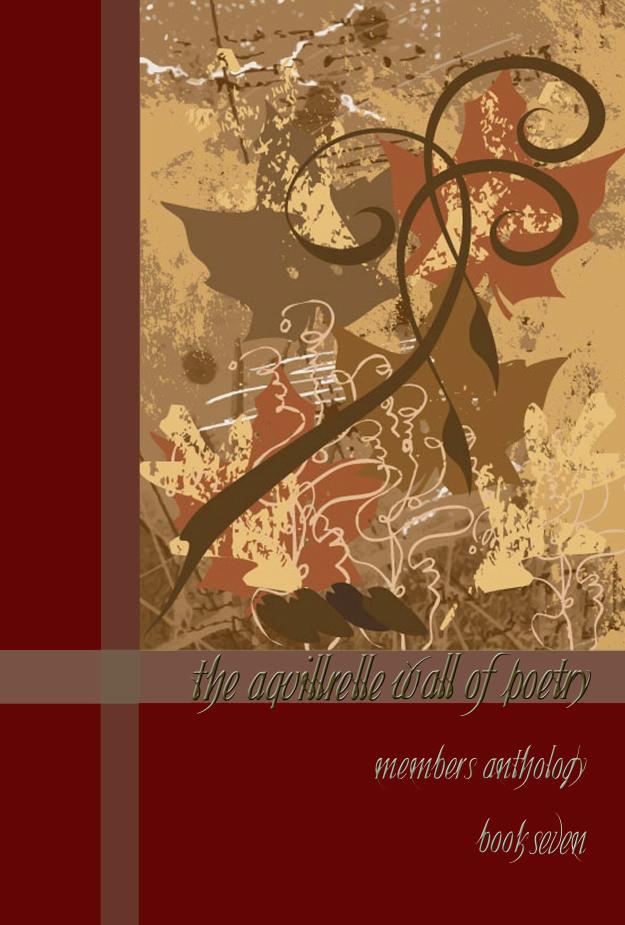(i)
Fukushima
Radiation
browns the waters
like spilled cocoa
and creeps across the sea
Laying naked on Santa Monica Beach at 2 a.m.
I awake with a start
my tongue burning
the taste of marshmallows
twisting my stomach
I’ve taken so many mind-expanding drugs
I can sense what no one else can
Homeless, I have only my own life to save
I’ve got to run before my ears turn blue
before my dick falls off
and my descendants turn into
Elephant Men
I pull on my jeans and sweatshirt
and take off running
for Nova Scotia
(ii)
Worse
We’re getting worse, worse than the Goths
and Vandals who sacked Rome
and ate all the green and yellow parakeets in Egypt
worse than the Soviets
who ate the peach-faced love birds
There are benevolent Nazi women
on the dark side of the moon
with huge boobs
and faces frozen with Botox
preparing our annihilation
(iii)
Rooftop
She’s on a chaise lounge on her rooftop
in Brooklyn
in this Facebook post
She’s stretched out
her legs extended straight in front of her
Her body is very white
She’s wearing an awkward looking bathing suit top
or maybe it’s a kind of halter
It’s hard to tell from this angle
She’s taken a selfie of her body
There must have been some neck strain involved
Her body is like milk
I can’t see any tattoos
She’s lost all her mystery
I can no longer pretend that she’s satanic
I’ve heard she works for a woman’s magazine
something like Better Homes and Gardens
Do they still publish shit like that?
She’s on the roof with the Hispanic neighborhood
spread out below
She smells the good odor of the rotisserie chicken place
the glass all greasy
and all the Mexican beer and sodas
the Mexicans enjoying their swarthy selves
She thinks she’s getting tanned up there
on the roof
but she’s just getting burned
Her thighs are thick
I see that now
I don’t mind thick thighs
but I mind women who talk about
how thick theirs are
as if it would ameliorate some of the shame
if they talk about it
in a jocular way
But who the fuck cares if her thighs are a little chubby
after everything we’ve been through in this world?
Anyway, as Michael Ventura said, fat feels good in bed
(iv)
Cruel Mayan
The woman with the cruel face and large breasts
rests on the couch under the jaguar
her legs folded under her
and talks on a cell phone
the universal currency
of disengagement and contempt
The doors are ten feet tall
but she is only five
the same height as her ancestors
who died before they were forty
and whose foreheads were flat
and their eyes crossed
in beauty
This woman’s face is rich in cruelty
as if cruelty came in batches of
a million pixels
Her cell phone and blouse are lurid pink
her toenails are orange
She is a minor character in a detective novel
who hides a shiv in her ratted hair
She studies the screen of her cell phone
like a Sephardic rabbi studying the Torah
She studies it like a weatherman
studying swirls of radar
for deadly storms
like a mother staring
into her baby’s crib
for signs of polio
or sudden death syndrome
like the father of a juvenile delinquent
peering into his son’s face for proof of worth
or worthlessness
This woman’s face gets crueler
as I watch
until she forces me to orgasm
without touching me
then leaves me
to recover my sanity
and to clean myself
She goes back to the couch
back to uninterrupted staring
into her cell phone
like a Sicilian studying the face of a pizza
for signs of crime
or the dark, mottled face of his lover
for signs of betrayal
(v)
Ruler
The jaguar’s eyes burn red
His mouth is red and glows from within
I come and go
The world is full of phantasmas
and lost Americans
whose only salvation is death
but who pour agua purificado
from jug to jug
as if
their rituals of juggling clean water
will void damnation
The jaguar’s teeth are sharp as a shark’s
sharp as a moray eel’s
This peninsula was once a sea
The jaguar’s whiskers are bristly
as my uncle’s
who ran a clothing store in Queens
His face cut me
when he bent to kiss
I’d already learned that vampires
came from Rumania
and here he was
with his flat cap
and red eyes
Ruler of the ghetto
he cheated black men
who were afraid to buy their work clothes
from someone else

Mitchell Krockmalnik Grabois has had over twelve-hundred of his poems and fictions appear in literary magazines in the U.S. and abroad, including POETRY LIFE AND TIMES. He has been nominated for numerous prizes. His novel, Two-Headed Dog, based on his work as a clinical psychologist in a state hospital, is available for Kindle and Nook, or as a Print Edition . To see more of his work, google Mitchell Krockmalnik Grabois. He lives in Denver.
Robin Ouzman Hislop is Editor of Poetry Life and Times his publications include All the Babble of the Souk and Cartoon Molecules collected poems and Key of Mist the recently published Tesserae translations from Spanish poets Guadalupe Grande and Carmen Crespo visit Aquillrelle.com/Author Robin Ouzman Hislop about author. See Robin performing his work Performance (Leeds University) .



